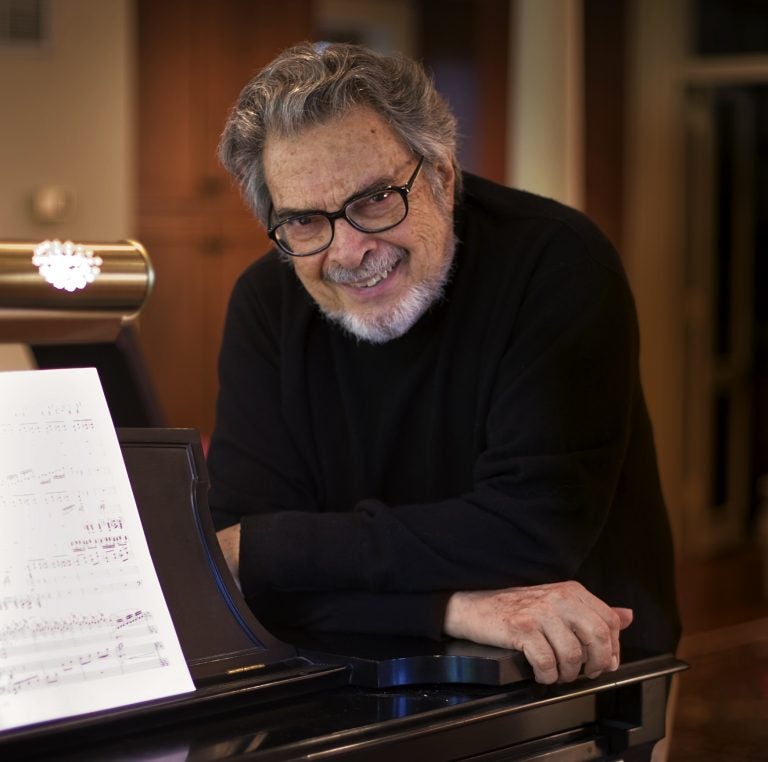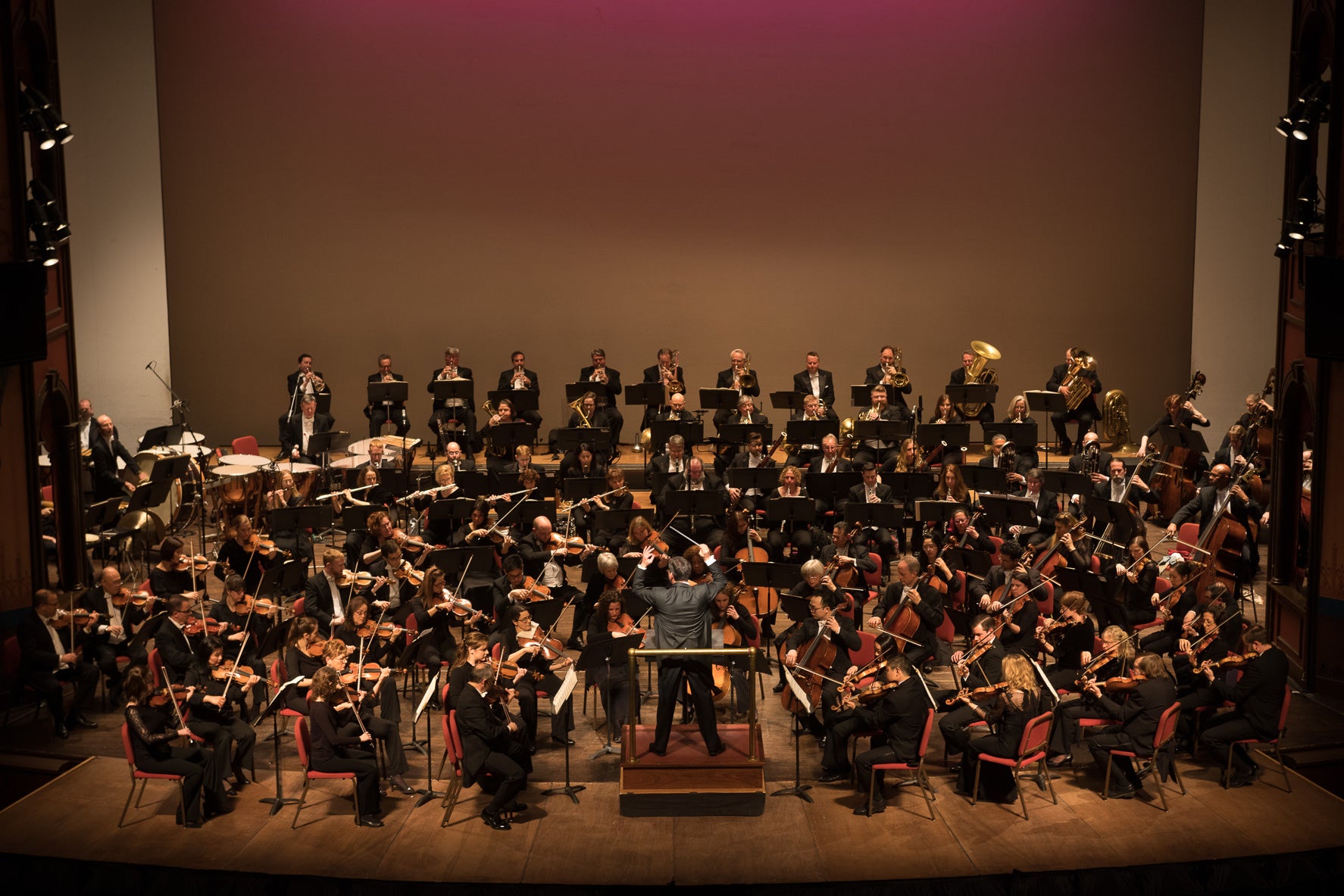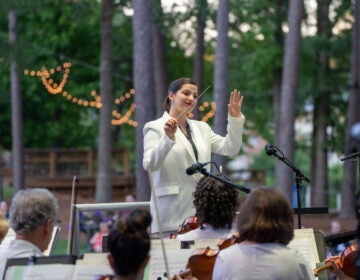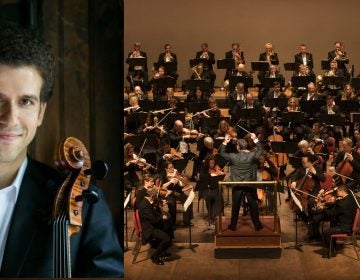90-year-old pianist performs with the Delaware Symphony in Wilmington and Lewes
Nationally renowned pianist Leon Fleisher continues his 90th birthday celebration with a pair of performances in Delaware.

90-year-old pianist Leon Fleisher will perform a pair of concerts this weekend with the Delaware Symphony Orchestra. (Chris Hartlove)
No one is immune from growing older. But like a fine wine, great artists like Leon Fleisher achieve a depth and complexity that only time can give.
Fleisher, one of America’s most renowned pianists, is on tour to celebrate his 90th birthday, a milestone he reached last summer. That tour brings him to Wilmington’s Grand Opera House on Friday night where he will make his debut with the Delaware Symphony Orchestra in a performance of Mozart’s Piano Concerto in A major, K. 414. The performance will take place again on Sunday at the Cape Henlopen High School Theatre in Lewes.
“I look forward to coming to Delaware and having another couple of opportunities to connect with Mozart,” he said by phone from his home in Baltimore. “In all of the places in the world that I’ve played, I’ve not in my recollection yet played in Delaware and I look forward to that.”

DSO Executive Director Alan Jordan, who crossed paths with Fleisher at the Tanglewood Music Center in Massachusetts, says his appearance is long overdue and highly anticipated. “It’s a wonderful opportunity for our musicians to be able to work with someone who has had not only amazing music experiences but life experiences as well,” he said.
The A major concerto is a favorite of Fleisher’s but he admits playing anything by Mozart can be a challenge. “I think it’s the simplicity that is the main challenge, because behind that simplicity is a profundity and an inspiration as well as a sense of form that is really quite unique,” he said.
The A major concerto is no exception. “The second theme of the second movement happens to be the first theme of the first movement which he got from one of Bach’s sons,” he said. “It’s just a most delightful piece, a source of great challenge and great joy.”
Fleisher was born in San Francisco in 1928 to immigrant parents from Eastern Europe. His mother saw the piano as a vehicle of upward mobility for her young son. Fleisher began playing at age four and five years later became — by invitation — a student of the legendary Austrian pianist and teacher Artur Schnabel. That association gained Fleisher entry to an elite group of musicians who can trace their artistic roots back to Beethoven: Schnabel studied with Theodor Leschetizky whose own teacher was Carl Czerny, a pupil of Beethoven.
More importantly, Schnabel gave Fleisher an enduring respect for musical structure and the intentions of the composer which he feels was largely abandoned during the Romantic era with the rise of the performing artist.
“In the 18th and early 19th centuries, the performers were the composers themselves and they had the gift and the talent,” said Fleisher. “Starting in the 19th century, the performer-as-species began to emerge. They didn’t have the talents of the composer and so began to compete with one another for audiences, downgrading what they did. Schnabel and the conductor Toscanini brought a post-Romantic integrity to the concert stage and I don’t think there is a successful concert pianist around who would not acknowledge that as a great benefit.”
That’s a tradition valued by DSO Music Director David Amado. “Fleisher is a musician first and not a pianist first, and I certainly appreciate that. I think everybody appreciates that,” he said. “He is someone who is so committed to the musical big picture rather than being concerned with the decorative detail.”
Fleisher enjoyed a dazzling career until 1964, when at age 36, a mysterious ailment — later diagnosed as focal dystonia — caused his right hand to seize. “I fell into a deep funk,” he said. “I grew a beard and a ponytail. I didn’t have the courage to get a motorcycle so I got a Vespa and I tooled around town most dangerously on my Vespa. It wasn’t until a couple of years after that when I woke up one morning and realized my connection to music was more than just as a two-handed piano player.”
Fleisher applied his talents to teaching and conducting. He also discovered — and even inspired — a large trove of literature for solo left hand and returned to the concert stage.
Still, he never gave up trying to restore function to his right hand. After a series of unsuccessful treatments, a proper diagnosis and experimental Botox injections enabled a triumphant return to two-handed playing in the 1990s. Fleisher stresses that the injections ameliorate the condition but they do not cure it and that he still must choose his repertoire carefully.
“Curiously enough, most of Mozart is off-limits, those pearly running scales are very difficult for a focal dystonic to play,” he said. “Chordal music is easier for my kind of focal dystonia. I don’t play the Romantic repertoire in public anymore, just for my students.”
Fleisher will perform Friday, March 22, at 7:30 p.m. at the Grand Opera House, with a pre-concert lecture at 6:30 p.m. An encore performance will be held at the Cape Henlopen High School Theatre in Lewes at 3 p.m. Sunday, March 24, with a pre-concert lecture at 2:30 p.m. Tickets are available at www.delawaresymphony.org.
WHYY is your source for fact-based, in-depth journalism and information. As a nonprofit organization, we rely on financial support from readers like you. Please give today.




